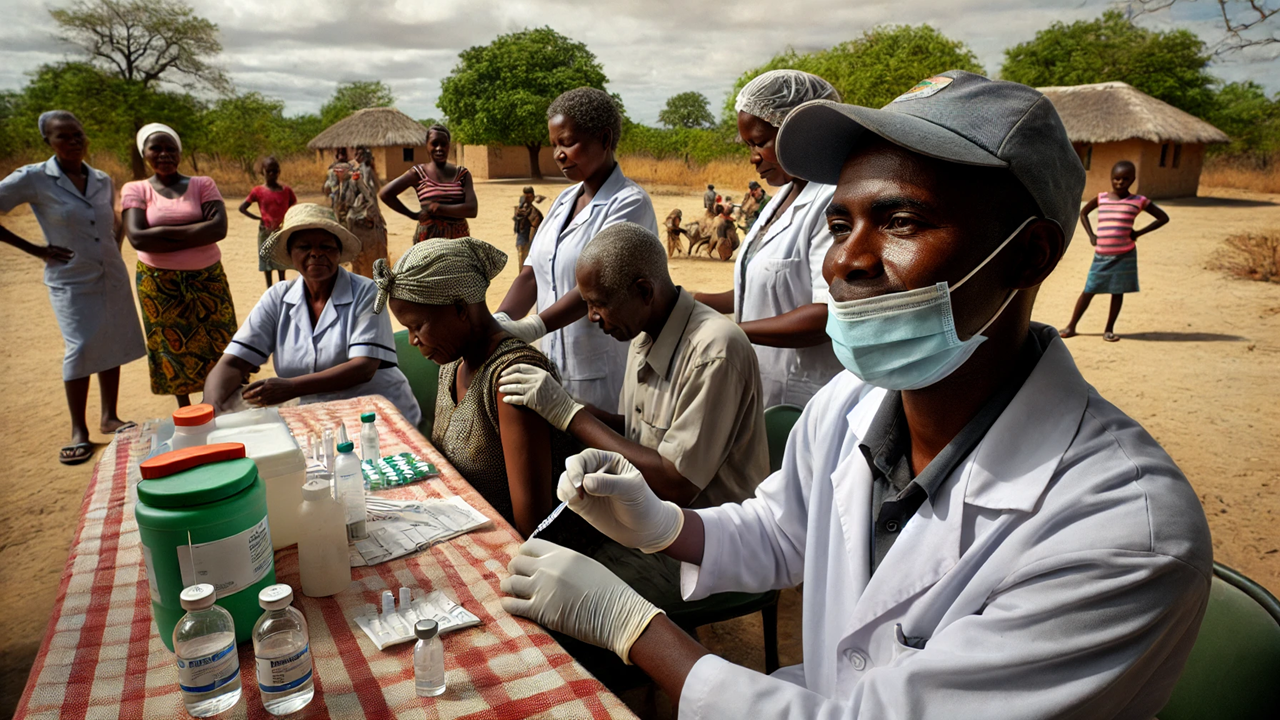UN Leaders and WHO Botswana Unite to Bolster Health, Diplomacy, and Equity
Ms. Motsete-Phillips’ visit focused on forging stronger links between Botswana’s multilateral advocacy in Geneva and local-level implementation.

- Country:
- Botswana
In a demonstration of renewed commitment to multilateralism, health equity, and integrated development, the World Health Organization (WHO) Country Office in Botswana recently hosted two influential high-level visits that underscore the country’s evolving role within the global health and diplomatic community.
The visits by Ms. Wenyan Yang, the newly appointed United Nations Resident Coordinator in Botswana, and Ms. Nthisana Motsete-Phillips, Botswana’s incoming Permanent Representative to the United Nations in Geneva, signal a strategic alignment of Botswana’s domestic development ambitions with international multilateral platforms.
WHO Welcomes UN Resident Coordinator: A Vision of Collaboration and Innovation
Ms. Wenyan Yang’s visit to the WHO Botswana Country Office marked a significant step in her introductory tour of UN agencies operating within the country. Welcomed by WHO Representative Dr. Fabian Ndenzako and the local WHO team, Ms. Yang brought to the table over 30 years of United Nations experience and a strong focus on transformational leadership, collective action, and measurable impact.
In her remarks, Ms. Yang emphasized the urgent need for creative, integrated, and fiscally responsible approaches to development in the face of tightening global financial constraints. “We must find new and more effective ways of working together, leveraging our collective strengths to deliver real, measurable change for the people of Botswana,” she asserted.
Dr. Ndenzako provided a comprehensive briefing on WHO’s key areas of support and engagement in Botswana. These include:
-
The transition of primary healthcare (PHC) delivery from central to local government systems.
-
The development and phased rollout of national health insurance as part of broader universal health coverage (UHC) goals.
-
Enhanced coordination across the health sector to align with national and international development targets.
He also acknowledged Botswana’s notable achievements, particularly in HIV control, maternal health, and pandemic preparedness, while underscoring that significant challenges remain in terms of reaching the Sustainable Development Goals (SDGs), closing equity gaps, and integrating services across sectors.
Ms. Yang affirmed her commitment to ensuring that the UN Country Team in Botswana remains a force for good, capable of supporting Botswana’s development aspirations through aligned, strategic, and impactful programming. Her leadership is expected to play a critical role in fostering cohesion across UN agencies and ensuring delivery of results on the ground.
Strengthening the Geneva-Botswana Bridge: Engagement with Ms. Nthisana Motsete-Phillips
In a parallel strategic engagement, WHO Botswana also hosted Ms. Nthisana Motsete-Phillips, who is preparing to take up her role as Botswana’s Permanent Representative to the United Nations and other international organizations in Geneva.
Ms. Motsete-Phillips’ visit focused on forging stronger links between Botswana’s multilateral advocacy in Geneva and local-level implementation. With a strong background in both private-sector leadership and international affairs, she expressed her dedication to becoming a “practical and results-oriented bridge” between Geneva-based commitments and domestic action.
“We must ensure that what is discussed and committed to in Geneva translates into impact on the ground. It is my responsibility to help make that connection real for Botswana,” she said.
Dr. Ndenzako emphasized the critical role of Botswana’s Geneva mission in ensuring that global health diplomacy aligns with in-country development goals, especially amid growing global challenges such as:
-
Shrinking donor funding
-
Institutional restructuring
-
Rising geopolitical tensions and shifting global priorities
-
Erosion of multilateral financing for middle-income countries
He further praised Botswana’s active role within the Africa Group and other global health platforms, noting that such engagement must now focus not just on representation but also on resource mobilization, agenda setting, and implementation coherence.
Tackling Realities: Equity, Classification, and Institutional Accountability
Ms. Motsete-Phillips was candid in addressing systemic challenges that limit the effectiveness of international support and national delivery. She pointed out persistent institutional inefficiencies, gaps in public sector accountability, and the urgency of developing realistic, transparent communication strategies—especially concerning complex policy areas like UHC.
Crucially, she raised a pressing issue that continues to affect Botswana’s access to international aid: the “middle-income country” classification, which often precludes the country from eligibility for grants, concessional financing, and technical support.
“This classification does not reflect the structural vulnerabilities or development financing needs we still face,” she warned. “We need a renewed narrative that presents Botswana’s realities in a way that is both accurate and compelling to global partners.”
She also expressed keen interest in collaborating with Botswana-based institutions such as the Botswana Vaccine Institute (BVI) to expand the country’s capacity in biomedical innovation, vaccine production, and regional health security.
A Shared Commitment to Inclusive Development and Global Health Security
The visits by Ms. Yang and Ms. Motsete-Phillips reflect a shared commitment among UN and national leadership to deepen partnerships, improve operational coordination, and align multilateral platforms with Botswana’s long-term development goals.
WHO Botswana remains central to these efforts, acting as both technical adviser and convenor. By facilitating these strategic dialogues, the organization underscores the importance of country ownership, regional solidarity, and equity-driven policy solutions in advancing health and development outcomes.
In the current global climate—marked by rising health emergencies, constrained financing, and increased inequality—Botswana's proactive and principled approach to both national governance and international diplomacy may offer a roadmap for other nations navigating similar challenges.










